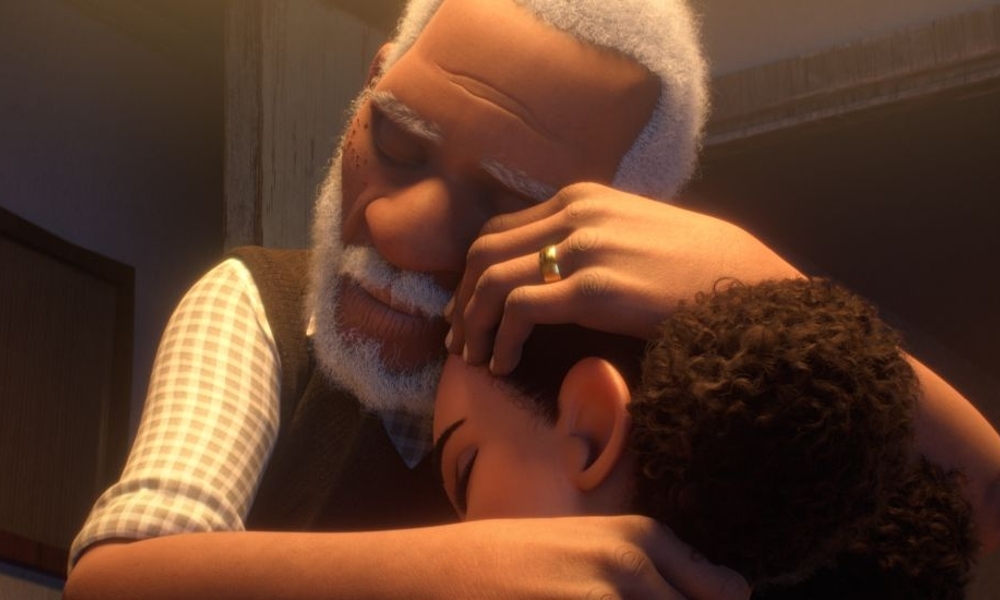Animation veteran Frank E. Abney III’s powerful new short Canvas has emerged as one of the most well-received projects of the year. The beautifully crafted work centers on a grandfather who finds the inspiration to go back to painting after suffering a great loss. We were fortunate to interview the talented writer-director, who has worked as an animator on many features (including Kung Fu Panda 2, Incredibles 2, Coco, Toy Story 4, Onward and Soul) and exec produced last year’s Oscar-winning Hair Love about his latest short. Here is what he told us about his new project, which premieres on Netflix this Friday (Dec. 11).
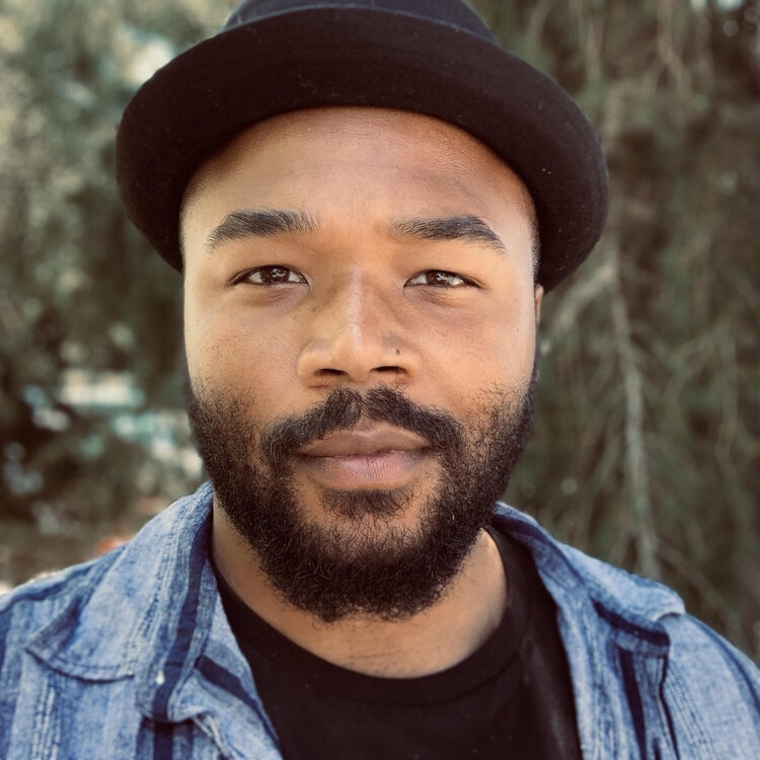
First of all, congratulations on your wonderful new short, which was a true labor of love for you.
Thank you so much!! It’s a vulnerable experience putting a piece of yourself out into the world. But I’m so happy with how it all came together.
Can you tell us a little bit about the development history of Canvas?
Absolutely. Years ago, trying to find my way in the animation industry, I was in a pretty bad creative rut, often questioning my own position in it. Spending time with my niece reminded me of how kids have this instinctive ability to effortlessly bring joy, not carrying the burdens of the world with them. I was inspired to create again, but it had to be personal. With that, the idea for Canvas began to take shape.
Canvas was inspired by my personal experiences dealing with tragedy and loss. We lost my father when I was five, and it affected my family immensely — especially my mother. As a kid, I watched as she pushed to take care of my sister and I, and often showed some kind of artistic background. But I never got to see too much of it, and wondered if there was more to that story and she had to push her talent to the side to raise us. Through my mother, I got to spend time with my grandpa (her father) growing up, and often saw this stoic man that would engage a bit, but I always felt had things bottled up, deep down. I held onto these thoughts growing up not knowing I would someday they would surface later in life. I wanted to tell a story about overcoming grief and surviving this type of trauma with the love and support of those around you.
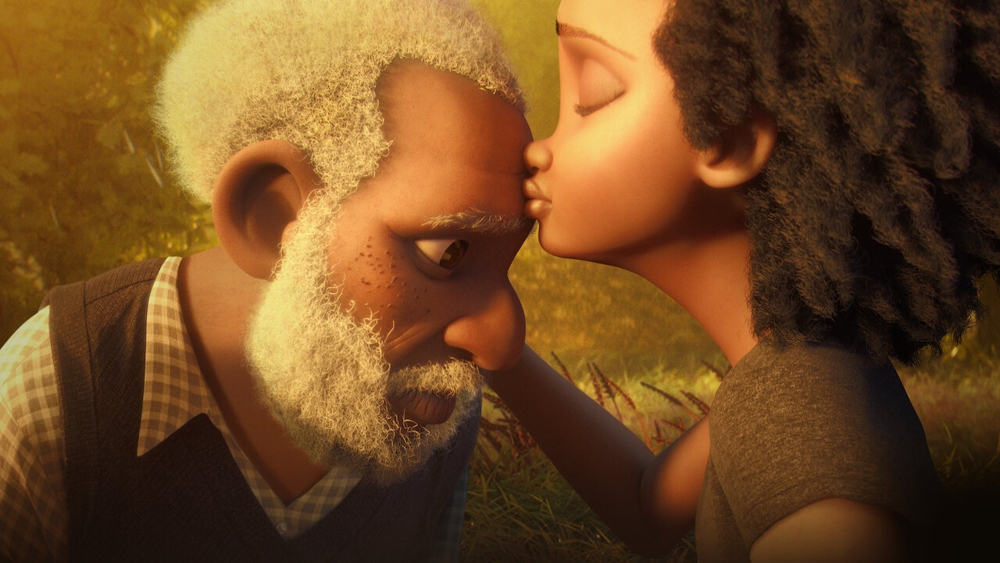
When did you start working on it and how many people worked on the short?
I started working on it around six years ago, and there were around 80 people involved, from artists on the production side to musicians.
Which animation tools did you use to produce it? Ballpark budget?
For the production of Canvas, we used Autodesk’s Maya for the 3D animation. For the 2D animation in the short film, we used Toon Boom Harmony, TVPaint, Procreate and Adobe Photoshop. We were on a pretty shoestring budget compared to short films in the typical studio space.
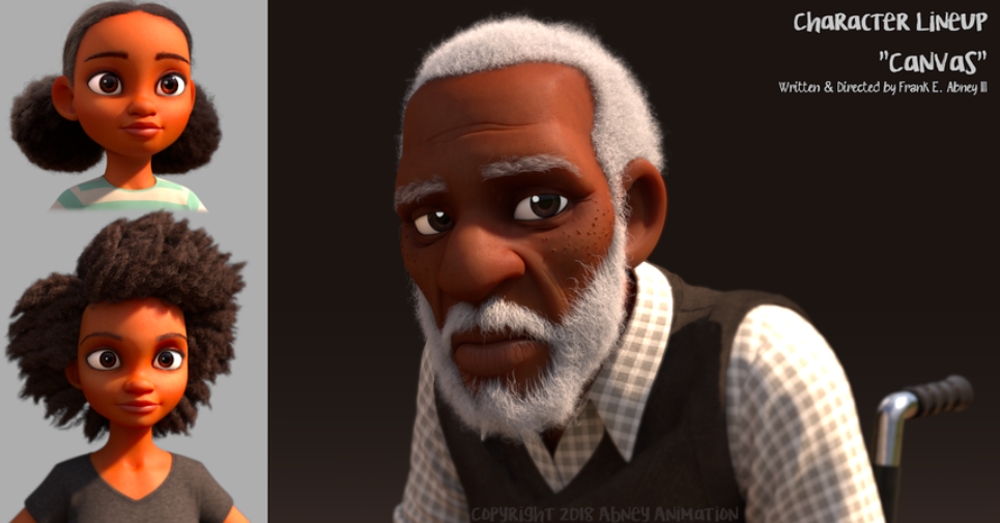
Can you talk a little bit about your inspiration for Canvas — both in terms of storyline and visual style?
Content-wise, I really wanted to tell a story about overcoming trauma, but with the idea that we don’t have to push through it alone. Aside from narrative, I wanted to have characters that represent who I am. We don’t see many black characters in animation, and as a black artist, I feel a responsibility to represent who I am in this industry.
Visually, my inspiration came from live-action films. I love how films like Moonlight, Selma and Pariah (to name a few) captured the narrative in such a poetic way. I wanted to do something like that with Canvas, with both the lighting and camera. So, a lot of the references I pulled were from the real world, rather than previous animated films. I also consulted with live-action cinematographer/director Morgan Cooper, to help lend an eye to the visuals.
A lot has been said this year about the importance of diversity and representation. Can you give us your take on it? Are things looking better?
The world is filled with people with unique backgrounds, and even more unique perspectives in how they interpret the world. If we want to tell unique stories about different cultures, and represent perspectives outside of our own with the intention to reach audiences around the world, I feel we have to make sure we have necessary representation on the creator side of things. I do feel like things are looking better, but there’s still work to do! I feel like it’s pushed some of us to take initiative and create projects ourselves, and not wait on it to happen for us.
What would you like audiences to take away from your short?
I’d like audiences to take away a feeling of hope! Hope that no matter what they’re going through, you can get through it, and you don’t have to do it by yourself. My community has become accustomed to moving on from its losses/traumas, and not taking the time to deal with them because of so many other things we have to worry about in the world around us. But, I don’t want that feeling to be the norm, so with Canvas, hopefully it can leave a good feeling, that we can overcome and reclaim those things that bring us joy.
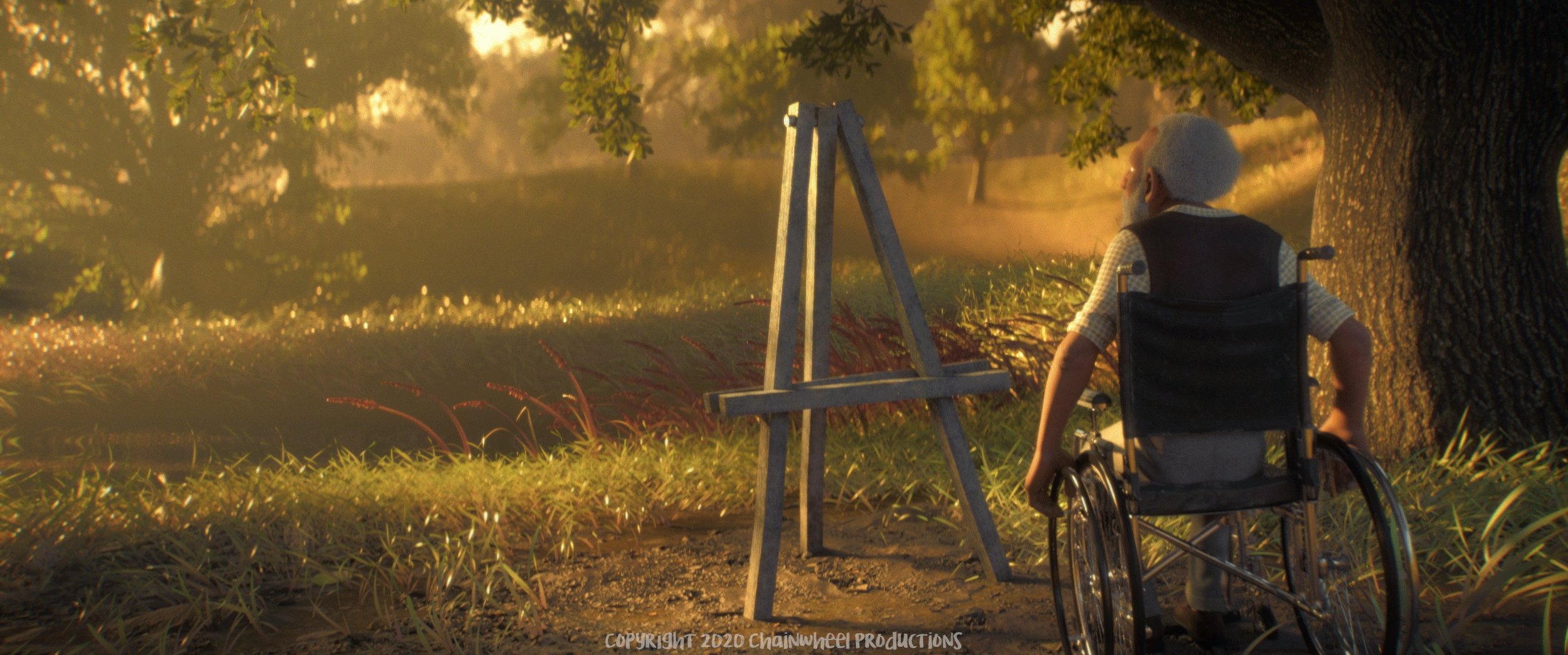
What was the toughest aspect of the project for you?
The toughest aspect of Canvas was definitely trying to complete it while working full time, with most of our artists also working to various degrees. I also have a family, so it wasn’t easy to afford the time to get things done at a normal pace. This was also the beauty of the project, too. We were able to take time needed to problem solve.
The feeling I get from my family being proud makes all the toughest aspects worth it. I really have to thank my amazing wife and kids for putting up with my late nights, early mornings, and all that comes with it, haha. On the production side I really have to thank my producer, Paige Johnstone, who wrangled this thing and pushed us all to get it done. Our team really pushed to finish this thing efficiently, and without the normal set up we’d have in a studio.
Did you take away any lessons from your experience on the short?
One of the largest takeaways from my experience on this short was to celebrate all wins. Oftentimes because of my work and home schedule, I was only able to put in an hour or so of work into Canvas. What I had to realize was that even if I only had an hour of progress, it was still progress. Everything being put toward the project was contributing to its completion.
Canvas premieres on Netflix this Friday, Dec. 11.




